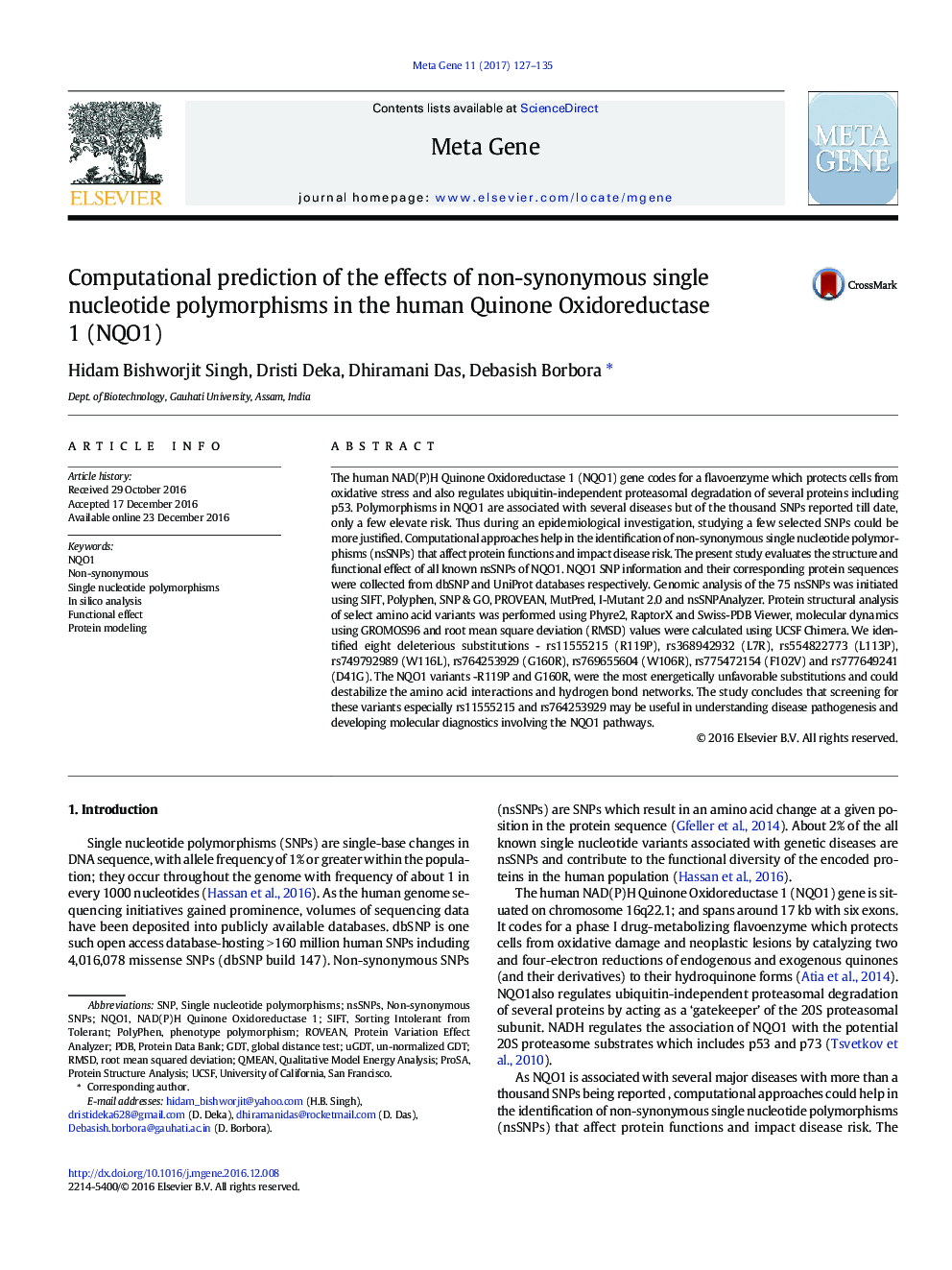| Article ID | Journal | Published Year | Pages | File Type |
|---|---|---|---|---|
| 5518378 | Meta Gene | 2017 | 9 Pages |
The human NAD(P)H Quinone Oxidoreductase 1 (NQO1) gene codes for a flavoenzyme which protects cells from oxidative stress and also regulates ubiquitin-independent proteasomal degradation of several proteins including p53. Polymorphisms in NQO1 are associated with several diseases but of the thousand SNPs reported till date, only a few elevate risk. Thus during an epidemiological investigation, studying a few selected SNPs could be more justified. Computational approaches help in the identification of non-synonymous single nucleotide polymorphisms (nsSNPs) that affect protein functions and impact disease risk. The present study evaluates the structure and functional effect of all known nsSNPs of NQO1. NQO1 SNP information and their corresponding protein sequences were collected from dbSNP and UniProt databases respectively. Genomic analysis of the 75 nsSNPs was initiated using SIFT, Polyphen, SNP & GO, PROVEAN, MutPred, I-Mutant 2.0 and nsSNPAnalyzer. Protein structural analysis of select amino acid variants was performed using Phyre2, RaptorX and Swiss-PDB Viewer, molecular dynamics using GROMOS96 and root mean square deviation (RMSD) values were calculated using UCSF Chimera. We identified eight deleterious substitutions - rs11555215 (R119P), rs368942932 (L7R), rs554822773 (L113P), rs749792989 (W116L), rs764253929 (G160R), rs769655604 (W106R), rs775472154 (F102V) and rs777649241 (D41G). The NQO1 variants -R119P and G160R, were the most energetically unfavorable substitutions and could destabilize the amino acid interactions and hydrogen bond networks. The study concludes that screening for these variants especially rs11555215 and rs764253929 may be useful in understanding disease pathogenesis and developing molecular diagnostics involving the NQO1 pathways.
